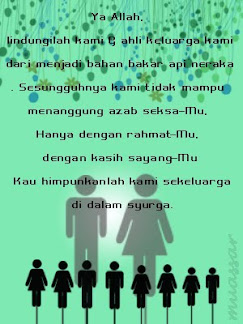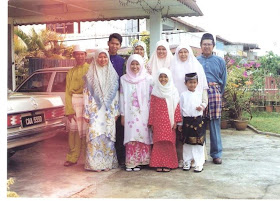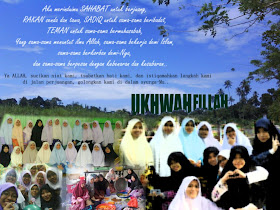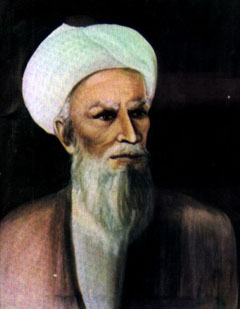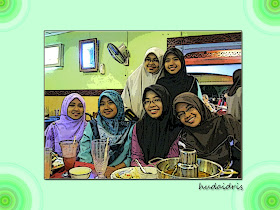I read recently that none of our public universities made it nowhere near the 400 listing of the best universities in the world by the Times ranking system. Surprise. Surprise. Surprise.
I am writing this article in order to show that public universities of Malaysia have lost all sense of responsibility in nation development and are simply ‘ranking crazy'.
When I joined UTM, almost 25 years ago, all I wanted to do was simply to research about Islamic and Malaysian architecture and use that knowledge to develop a more meaningful architecture for our communities in this country and contribute to the intellectual development of the discourse and thinking of Islamic Architecture for those of my own faith.
I promised myself to write many books, many academic papers, many mass media articles and use the electronic media to disseminate as much knowledge as possible.
I also promised myself that I must train at least 20 PhD scholars who would develop the two academic fields and set up a few centres on Islamic architecture, mosque and community development, better housing and community architecture. That was it.
Never in my entire career had I sought to be ‘world class' or drive myself to be ‘an internationally recognised figure' or to help UTM become the top 10 ranked in the world. Never.
Why? Simply because I thought architectural knowledge was supposed to help us live in a more meaningful and sustainable environment.
I also wanted to develop many teaching aids like videos and webportals that would make learning a pleasure not only to students but also to the public who would help influence political policies that could change building by-laws or design guidelines of mosques, housing, schools, community buildings and many others.
I thought that an academic's job is to ultimately help society understand the important issues of his or her particular field of expertise.
Not to strive for million ringgit grants. Not to strive for a Geneva Award. Not to be photographed smilingly with the prime minister.
If I ever stumbled upon this three accolades, well and fine, but I would not spend sleepless nights thinking how to be a ‘superstar'.
What has happened to the universities now? The vice chancellors care none about nation development but simply to introduce management policies that would ‘leapfrog' our institutions into a world class ranking system.
How do they do that? Well, first of all by insisting all promotions be tied directly to the production of internationally acclaimed journals with scopus or ISI indexed publications. I hear that many of these journals require large payments from the contributors.
Next, the university management hires many foreigners who they think can publish more papers than our academics. There is not much place for ‘community and social contribution' but papers and papers and research grants and more grants.
It is a mad rat race and a crazy dash for recognition. Recognition, world class, rankings are the buzz words of academia nowadays.
What is the result of this new approach to university management? Not many want to write text books for students.
Virtually no one wants to write popular articles or books to explain the implications of their knowledge to society.
Every academic would treat their post graduate students as a paper churning individual to add to their multiple authored journal papers.
The supervisors of PhD and masters no longer care about nurturing a budding scholar but treat them as slaves to organise seminars, write papers, chase data and treat them like lab technicians.
What of the young scholars and academics? Upon receiving their PhD's they would stare in complete despair at the loads of KPI's that keeps them on the move without a pause of philosophic reflection. So what do these young scholars do?
Five of them would sign a pact that if any one of them or any one of their post-grad students publishes a journal paper, all must make sure that their names would appear on all the papers.
In this way, the young scholars would fill up their CV's with many papers, 75% of which has nothing much to do with their areas of expertise.
Another disaster comes with the paper laden KPI's. The undergraduate students are left to fend for themselves when their lecturers are busy fishing for grants, travelling the globe to present international papers and organising seminars, writing papers or walking up and down ministers' offices to gain favours.
It used to be that research was conducted and centres set up to spearhead development in academic areas that would help our people first and foremost.
But now I have seen centres and book dedications on issues related to the prime minister. I heard tell of a public university giving vast amount of money for the Islamic Hadhari of a former PM.
Recently research was established and a seminar was mooted on Bugis architecture simply because an important political personality in the government of the day has Bugis ancestry!
VCs' are playing public relations works in order to attract grants and endowments and much time and effort at the university is spent on PR.
Where is the integrity of the academic, the scholar? Where is his ‘philosophic and moral distance' from those in authority?
If academics and scholars are so beholden to the powers that be, who would tell the people of a nation that such and such a thing needs to be changed?
There is always the fear of not being promoted for stepping on the feet of the powers that be.
Even the National Council of Professors seems to be a timid and curry favouring entity that brings utter shame to the idealism of a moralistic academia.
The professors are supposed to be the conscience of knowledge for the betterment of the people en masse but they too seek favours, titles, projects and grants.
I enjoy more talking about the state of the country to taxi drivers than I do with university administrators and so called academics.
To my mind, the universities should stop looking to the ranking system and for goodness sake, stop competing for the Research University status or the Apec status.
The government should just do away with this ridiculous and childish race and concentrate on awarding grants and privileges to those scholars, faculties or institutions that would serve our people first and last.
If by some stroke of luck we can contribute to the world in some manner, well and fine but do not place local scholars dealing with local issues and writing for local journals or publishing local books at a shameful distance! We must be Malaysia first, and the world second.
Why in heaven's name should we be looking to the world first when we have massive problems in our own back yard?
If we concentrate all our academic resources to help our students, to help our teachers in schools teach our children, to help our peoples understand many economic, ecological, religious and other issues, then I say we have made a great contribution already.
If some Time ranking system wants to acknowledge us in their game of ‘excellence in academia' well and fine but if we fail to meet their standard, So what!
Now what do we have? We are not ranked even in the first 400. The people of Malaysia do not even know what the heck our universities contribute except teach our students to get jobs. We have a group of frustrated and stressed local academics.
Those academics who speak and write in Bahasa Malaysia only, feel totally sidelined. Local journals are on the wane. Not many want to write books for Dewan Bahasa Pustaka or the University Press.
Our undergraduates are not of leadership material as they are treated not as adults or potential leaders but school children by the paper chasing academia. Apa dah jadi? Apa lagi nak jadi?
The game of counting scholarly citation to reflect academic prowess is also a funny one. Some academics spent much of their time counting and monitoring their scholarly citations and also urging other academics to cite his or her works.
The sad part of it all is that there is academic management who rely much on citations for promotion.
I myself do not even bother to learn or look up how many scholars have cited my work. I find great pleasure to discover an Australian school head teacher sharing my article on national architecture with her staff and students.
I was pleased that the Bar Council uploaded my crime article which was published in the Starnewspaper. I was extremely proud one day when my article about non-Muslims and mosques was found on Dato' Lim Kit Siang's blog and also that the Christian Heraldnewspaper shared my article about the Azan issue with their members.
Now those are citations that can forge a nation together. Of course there are academics who belittle my work and say that the writings are of low academic merit since it is not reviewed by academic peers.
To these academics I only say that I did not join academia to make myself part of an elitist membership speaking only to peers but I joined the university to actually ‘do something' about the state of our people and country.
So this is what I want the government and the universities to do. First, get rid of this research university nonsense and just give the 50 million ringgit to all the universities to nurture their young scholars.
Better to spend the money on the next generation of academics than build more 300 million ringgit mosques or a few warisan towers or even relandscaping Putrajaya every National Day.
Get rid also this bad business of Apex Universities that see public universities vying with each other in the race for publications and grants.
Public universities in Malaysia were once one large family but now they are bickering to keep and not share their talents.
When UKM requested my services for a two year secondment to develop research in Islamic Culture and Architecture, UTM flatly refused without even discussing the offer with me. Such is the state of arrogance and totalitarianism as well as pure ‘stinginess' in a veteran institution.
The First Wave of academia was about establishing an academic foothold and producing graduates to fill the industry.
We are now in the Second Wave where we must establish new research grounds, produce graduates that are not just workers but leaders, and prepare the young scholars in post-graduate studies to tackle the Third Wave which is innovation and entrepreneurship as well as beginning to take on the west foothold by foothold.
In this slower but surer way the Fourth and Fifth Wave will ensure that we can stare the west point blank in the eye and wait for them to blink first.
Civilization and creativity cannot be rushed and hurried even if one pours in trillions of ringgit. Nurturing the new scholars is the key.
We, the veteran academics, must ensure that we give tasks that we can carry if we were as young as they are and not simply to cut and paste orders for promotion.
Money must be prioritised to the many young scholars and not to the veteran few.
Great love and respect must be shown to them whilst a manageable reward system be formulated to give proper encouragement.
Finally, the most important lesson of all is to teach the young that theirs is a responsibility of nation development for their people first and foremost and to mankind ultimately.
Theirs is not a career of self aggrandisement and elitist groupings but a purely moral and spiritual one.
link :
http://www.malaysiakini.com/letters/178248 malaysiakini letters







